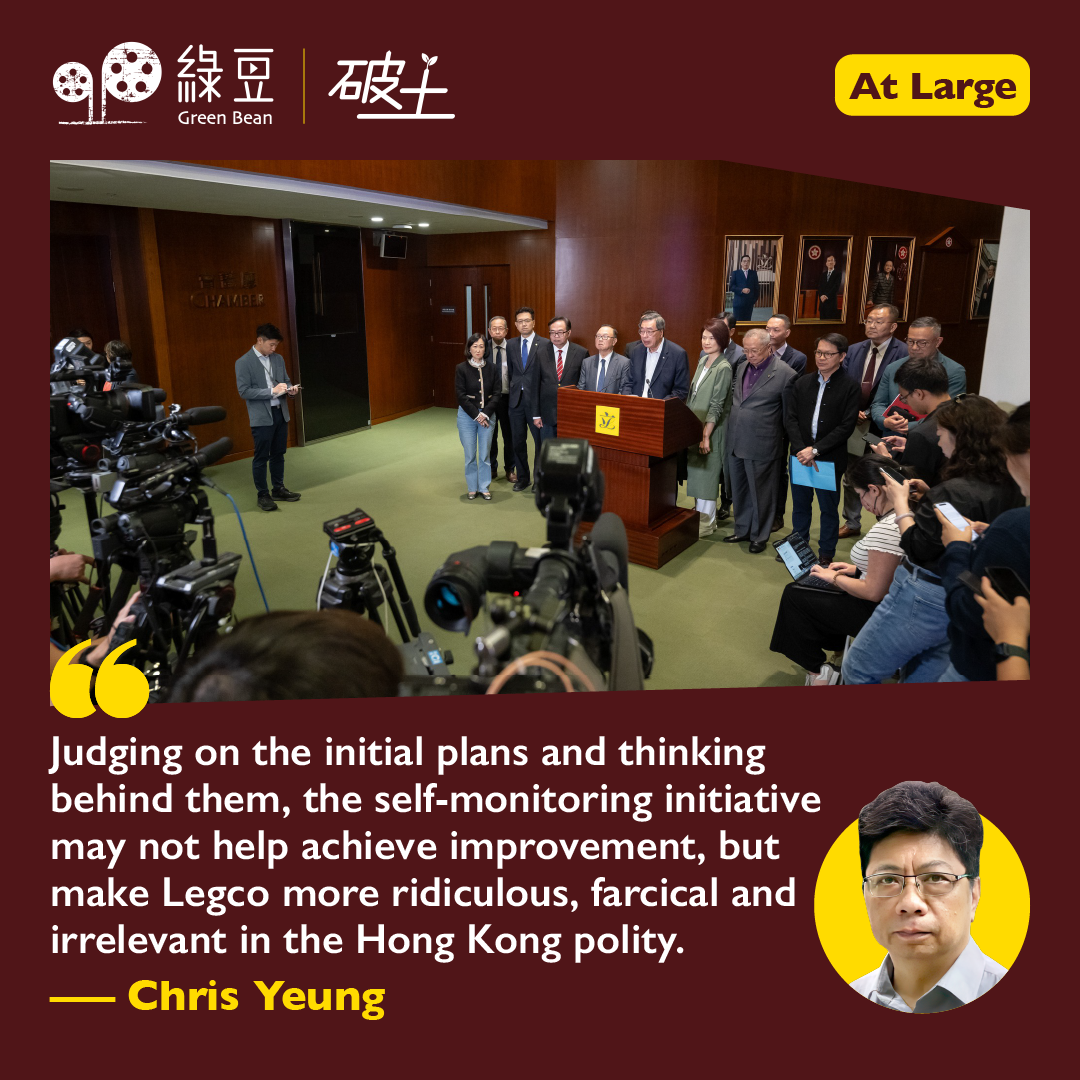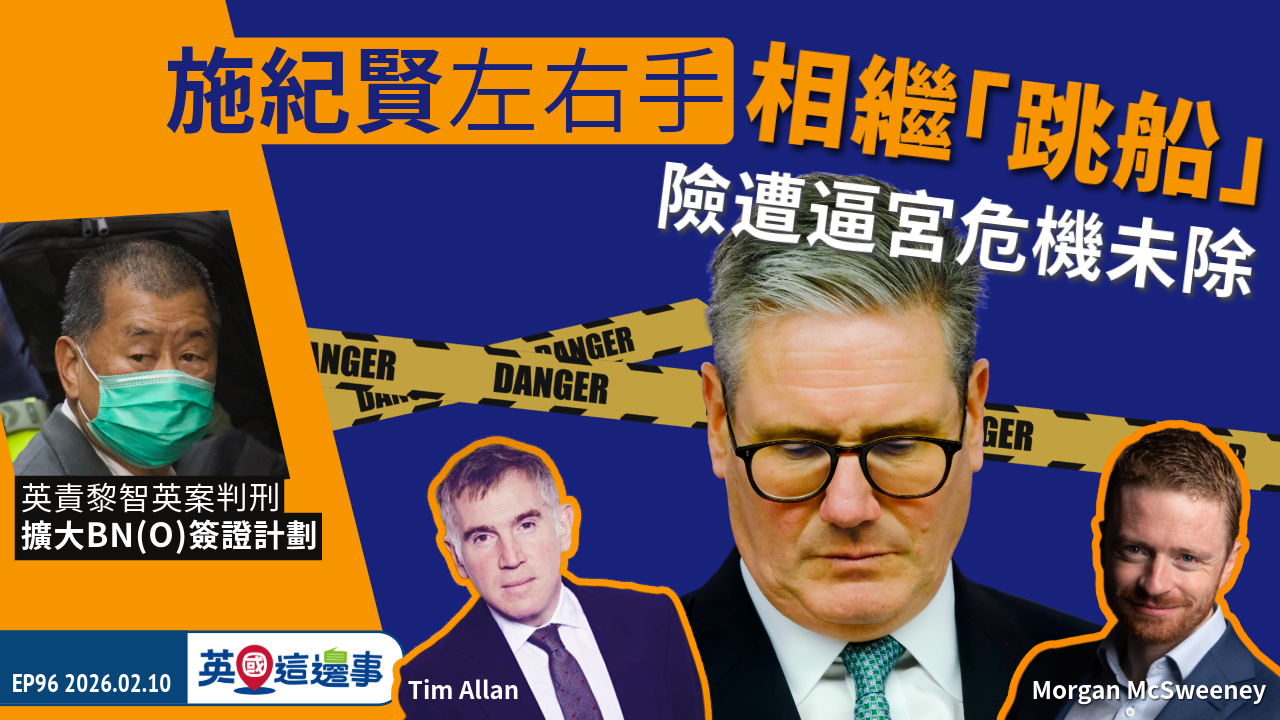Back to the basics in improving Legislative Council

Aimed at “improving” the electoral system, the Beijing-masterminded overhaul of the election system for Hong Kong’s Legislative Council in 2021 has left a lot to be improved. With its four-year term due to end by the end of this year, the first legislature constituted under the new electoral method started seeking “self-improvement”. They plan to formulate a set of rules governing the deeds and words of legislators.
Speaking to reporters after a meeting on last Friday, President Andrew Leung, surrounded by representatives of different political factions in the legislature, has vowed to “do better” through self-monitoring.
But judging on the initial plans and thinking behind them, the self-monitoring initiative may not help achieve improvement, but make Legco more ridiculous, farcical and irrelevant in the Hong Kong polity.
Set out the “Dos” and “Don’ts”
To be fair, the lawmakers should not be faulted for making an attempt, be it half-hearted or merely cosmetic, to seek improvement. Admitting shortcomings and deficiencies is always the first step towards doing a better job.
The crux of the matter, however, is to identify and understand better the weaknesses and deficiencies and, more importantly, their root causes.
Long in their plan to set out the “Dos” and “Don’ts” in the new rules, Leung was shy from telling what and how members went wrong since they took office after winning their seats in 2021.
Ronny Tong, an Executive Council member and former lawmaker, has been more frank in commenting on the incumbent legislators. Path of Democracy, a think-tank he founded, has recently commissioned a survey, which shows more than half of respondents were dissatisfied with the performance of the Legco.
In his analysis, Tong has attributed the public discontent to members’ competence. He claimed some members only copied and praised the views of the central authorities, and that they lacked understanding about the bills they needed to scrutinise. He added that the public might also be unhappy with the flight arrangements of a Legco trip to Japan earlier this year.
The fundamental deficiencies
Though true they are, the deficiencies of the Legco formed under the new electoral system are more fundamental. Suffering from a more narrow electoral base, the new Legco has been confronted with a wall of indifference from a considerable portion of the community. Only 30 percent of registered voters had cast their votes in the 2021 Legco election, a record low in the city’s history of popular elections.
With the importance of voters’ ballots in deciding who should sit on Legco shrinking, the sense and system of accountability of elected members to voters have changed drastically. Under the previous system, members’ responsiveness to the aspirations of their constituents had been vitally important in elections. That has become blurred under the new electoral rules.
Of the 90 seats up for grabs in the Legco election, only 20 are set aside for geographical constituency polls. Of the remaining 70, 40 are chosen by a 1,500-member election committee and the others through functional constituencies.
The Beijing factor, which has already been relevant in previous elections, albeit indirectly, has become more important and apparent after the electoral system was “improved.”
The views, if not directives, of the central authorities ranging from such macro strategies as Greater Bay Area development, innovation technology to specific policies such as subdivided flats and coastal and maritime tourism have carried more weight in the city’s governance.
Beijing’s increased assertiveness in the way the city should be governed is understandable, but not necessarily desirable.
The function and role of Legco
Shocked by the massive and protracted protests whipped up by a now-shelved extradition bill in 2019, Beijing is keen to restore order in the city as soon as possible by revamping the electoral system and stepping up supervision of the city.
Seeking to improve governance, Beijing is adamant the legislature should play a more supportive role in supporting the governance of the executive authorities led by Chief Executive John Lee.
Haunted by sharp clashes between the democrats and the pro-establishment camp in the pre-2021 Legco, Beijing is hoping to see a more harmonious legislature with members backing government policies in broad terms.
Under the new political order, the tolerance of dissenting voices and sharp criticism inside and outside Legco has worn thin.
With public discontent over the Government as shown in opinion polls staying at a high level, the function and role of Legco as a window of public opinion have been markedly weakened. This has worsened public perception of Legco, deepening the feeling of indifference and cynicism.
Against the background, any attempt by the outgoing legislators to seek self-monitoring without improving the basic role and function of Legco as a body that holds the Government accountable to the people will be mere cosmetic, public relations exercise with little substantive effect.
▌[At Large] About the Author
Chris Yeung is a veteran journalist, a founder and chief writer of the now-disbanded CitizenNews; he now runs a daily news commentary channel on Youtube. He had formerly worked with the South China Morning Post and the Hong Kong Economic Journal.





